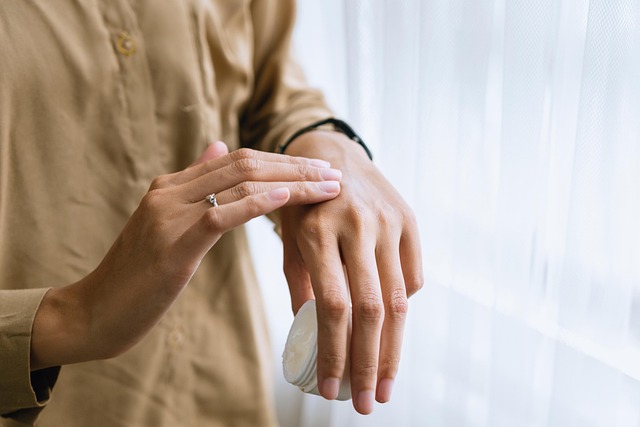Overnight Relief for Bed Bug Bites: Safe Steps to Reduce Itching and Swelling
Waking up to red, itchy welts from bed bug bites can be distressing and uncomfortable. These small parasitic insects feed on human blood during the night, leaving behind irritating bite marks that can disrupt your sleep and daily routine. Understanding how to properly treat bed bug bites overnight is essential for managing symptoms, preventing infection, and getting the rest you need. This guide provides evidence-based strategies to soothe itching, reduce swelling, and protect yourself while addressing the underlying infestation.

Bed bug bites typically appear as small, raised, red bumps that may be arranged in clusters or lines on exposed skin. The itching sensation often intensifies at night, making it difficult to sleep. While bed bug bites are not known to transmit diseases, the physical discomfort and psychological stress they cause can significantly impact your quality of life. Proper overnight treatment focuses on symptom relief, preventing secondary complications, and creating a safer sleep environment.
Immediate First Aid: Clean the Area, Apply a Cool Compress, and Resist Scratching
As soon as you notice bed bug bites, gently wash the affected area with mild soap and lukewarm water. This removes any bacteria or irritants from the skin surface and reduces the risk of infection. Pat the area dry with a clean towel rather than rubbing, which can further irritate the skin.
Applying a cool compress or ice pack wrapped in a thin cloth can provide immediate relief from itching and swelling. Leave the compress on the bites for 10 to 15 minutes at a time, repeating as needed throughout the evening. The cold temperature constricts blood vessels, reducing inflammation and temporarily numbing the area.
Resisting the urge to scratch is perhaps the most challenging yet crucial step. Scratching bed bug bites can break the skin, introducing bacteria and leading to infections such as impetigo or cellulitis. Keep fingernails short and clean, and consider wearing lightweight cotton gloves at night if you tend to scratch in your sleep. Distraction techniques and keeping the affected areas cool can help minimize the scratching reflex.
Topical Overnight Relief: Hydrocortisone Cream, Calamine Lotion, or Topical Numbing Agents
Over-the-counter topical treatments can significantly reduce itching and inflammation overnight. Hydrocortisone cream, typically available in 0.5% to 1% concentrations, is a mild corticosteroid that reduces inflammation and suppresses the immune response causing itching. Apply a thin layer to the bites before bed, following package directions carefully.
Calamine lotion is a traditional remedy that creates a cooling sensation and forms a protective barrier over the bites. Its astringent properties help dry out any oozing and reduce irritation. The pink lotion may be visible on skin but is generally well-tolerated and safe for frequent application.
Topical numbing agents containing ingredients like benzocaine, lidocaine, or pramoxine can provide temporary relief by blocking nerve signals that transmit itching sensations. These products work quickly and can be particularly helpful for severe itching that interferes with sleep. Always perform a patch test before widespread application to check for allergic reactions.
Aloe vera gel, either from a fresh plant or store-bought pure gel, offers natural soothing properties and can be refrigerated for an extra cooling effect. Some people also find relief with tea tree oil diluted in a carrier oil, though this should be used cautiously as it can cause skin irritation in some individuals.
Oral Antihistamines and Sleep Support: Reduce Itching and Help You Rest
Oral antihistamines can be highly effective for managing the allergic response to bed bug bites, especially overnight. First-generation antihistamines like diphenhydramine or chlorpheniramine have sedating effects that can help you fall asleep while simultaneously reducing itching. These medications block histamine receptors, which are responsible for the inflammatory response causing redness, swelling, and itching.
Take the antihistamine approximately 30 minutes before bedtime, following dosage instructions on the package or as directed by a healthcare professional. Be aware that these medications can cause morning drowsiness, so avoid driving or operating machinery until you know how they affect you.
Second-generation antihistamines like cetirizine or loratadine are non-sedating alternatives that can be taken during the day to manage symptoms without causing sleepiness. Some people find taking a non-sedating antihistamine in the morning and a sedating one at night provides comprehensive 24-hour relief.
Ensure you stay well-hydrated when taking antihistamines, as some can cause dry mouth. Avoid alcohol consumption, as it can increase drowsiness and potentially worsen skin irritation.
Protect Your Sleep Environment: Isolate Bedding, Cover Exposed Skin, and Launder Bedding Promptly
While treating existing bites, it is equally important to prevent new bites by addressing your sleep environment. Immediately remove all bedding, including sheets, pillowcases, and blankets, and wash them in hot water (at least 60°C or 140°F) followed by a high-heat dryer cycle. This kills bed bugs and their eggs.
Vacuum your mattress, box spring, and bed frame thoroughly, paying special attention to seams, crevices, and tufts where bed bugs hide. Dispose of the vacuum bag or empty the canister into a sealed plastic bag immediately. Consider using a bed bug-proof mattress encasement to trap any remaining bugs inside and prevent new infestations.
Wear long-sleeved pajamas and long pants to bed to minimize exposed skin. Choose lightweight, breathable fabrics like cotton to avoid overheating, which can increase itching. Tuck pant legs into socks if bites are concentrated on your ankles and feet.
Move your bed away from walls and ensure bedding does not touch the floor, as bed bugs typically crawl from hiding spots to reach their host. Place bed bug interceptor traps under bed legs to monitor and catch bugs attempting to climb up.
When to Seek Medical Care: Signs of Infection, Severe Allergic Reaction, or Bites That Worsen
Most bed bug bites resolve on their own within one to two weeks with proper home care. However, certain symptoms warrant professional medical attention. Seek care if you notice signs of infection, including increased redness spreading beyond the bite area, warmth to the touch, pus or discharge, red streaks extending from the bite, fever, or swollen lymph nodes.
Severe allergic reactions, though rare, can occur. Symptoms include difficulty breathing, swelling of the face or throat, rapid heartbeat, dizziness, or widespread hives. These symptoms require immediate emergency medical attention.
Consult a healthcare provider if bites do not improve after one week of home treatment, if itching becomes unbearable despite over-the-counter remedies, or if you develop multiple infected bites. A doctor may prescribe stronger topical corticosteroids, oral antibiotics for infection, or oral corticosteroids for severe allergic reactions.
Persistent or worsening symptoms may also indicate continued exposure to bed bugs, suggesting that professional pest control intervention is necessary to eliminate the infestation completely.
This article is for informational purposes only and should not be considered medical advice. Please consult a qualified healthcare professional for personalized guidance and treatment.
Conclusion
Overnight relief from bed bug bites involves a multi-faceted approach combining immediate first aid, topical and oral treatments, environmental protection, and knowing when to seek professional help. By cleaning affected areas, applying appropriate topical remedies, using antihistamines to reduce itching and promote sleep, and protecting your sleep environment, you can significantly reduce discomfort and prevent complications. Remember that treating the bites is only part of the solution; addressing the underlying bed bug infestation through thorough cleaning and potentially professional pest control is essential for long-term relief. With proper care and persistence, you can manage symptoms effectively and restore peaceful, bite-free sleep.




